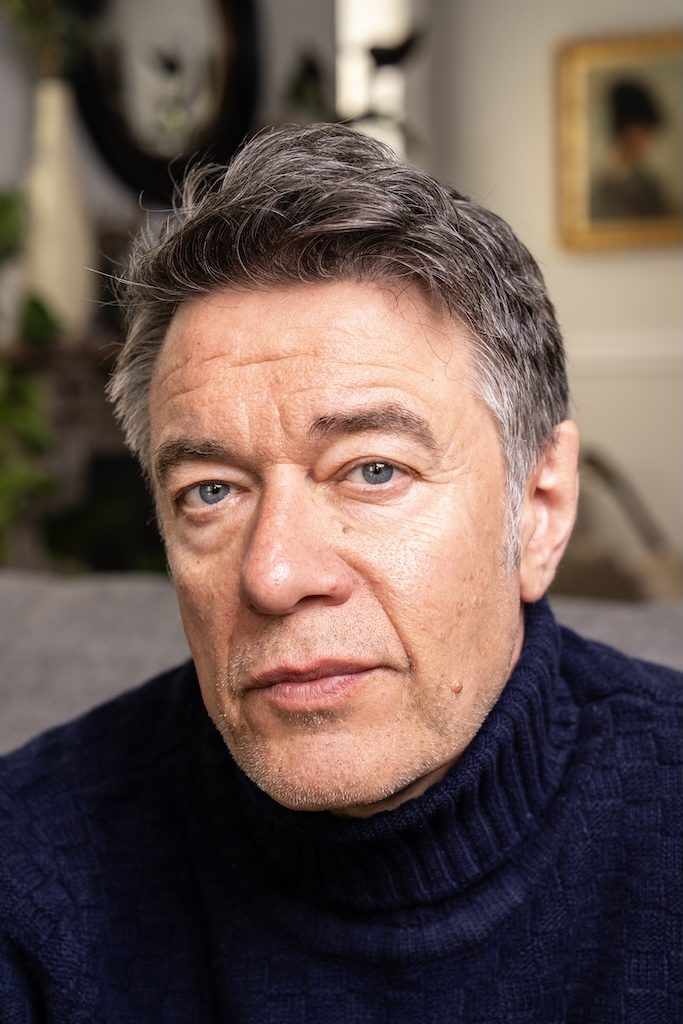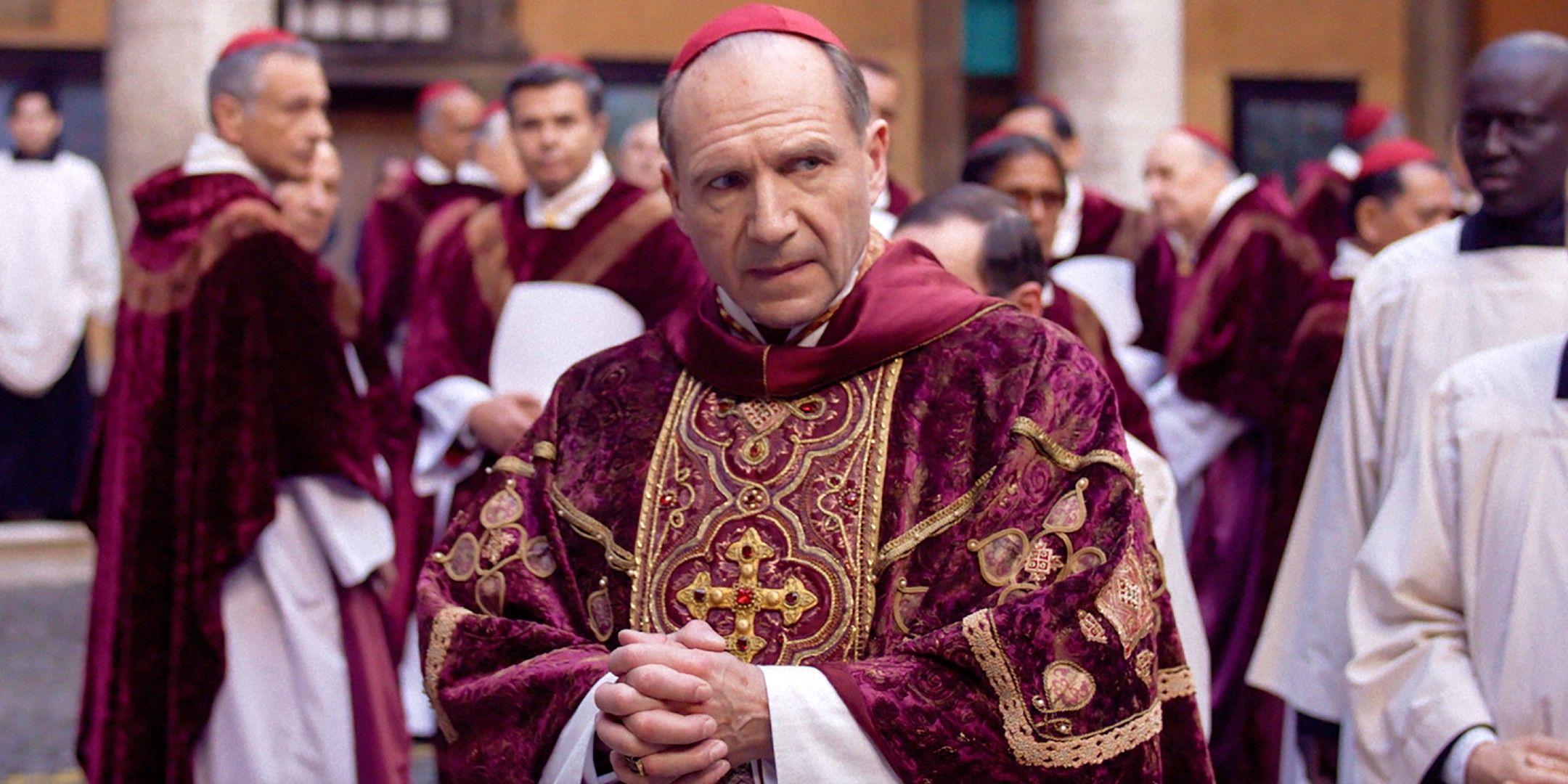Playwright and screenwriter Peter Straughan is most-known for his Academy Award-Nominated screenplay for Tinker Tailor Soldier Spy. Now he returns with a cracking adaptation of Robert Harris’ acclaimed novel Conclave, a story about Cardinal Thomas Lawrence (Ralph Fiennes) facing a deep crisis of faith and conscience when he discovers alarming secrets within the church while organizing an election for the successor of a recently-deceased pope. It stars Stanley Tucci, John Lithgow, and Isabella Rossellini.
We spoke with Straughan about distilling the spirit of the edified Vatican world in this gripping mystery thriller. “[Author] Robert Harris captures those familiar thriller tropes from those great political thrillers of the 70s and made them new and fresh,” mentions the screenwriter.
Getting Inside The Vatican
Recreating the essence of a rarified world few people get to experience was Straughan’s first writing task. The introduction to the world of the Vatican began by showing the “ordinariness and frail humanity of these people.”
“I think it was all about balancing the opposites that’s in the DNA of the Catholic Church. It’s both grand and epic, and small and human in scale. It’s spiritual, but also very worldly. It’s idealistic, but it’s also pragmatic and there’s a lot of real politics,” explains the screenwriter about this place of contradictions.
Conclave aims to snap the “behind the scenes” moments rather than the earnest rituals of the Catholic Church.

Peter Straughan. Photo by Antonio Olmos
The corruption within this unassailable institution has been well-documented, but isn’t the main point of Conclave. Straughan wants to tell a story from “the point of view of the believers.”
“Some of them are greedy, some of them are cowardly, some of them are power mad, and some of them are selfless.” People are basically all the same irrespective of their post in life.
From the crooked timber of humanity, no straight thing was ever made
Introducing Cardinal Lawrence
Cardinal Thomas Lawrence is the main driver of the action in Conclave since he’s most affected by what should ordinarily be a routine election. Upon discovering disturbing papal secrets, his faith, purpose, and belief in the church is shaken.
“He’s being drawn in three different directions, trying to find his place, not only within himself, but his place within everything.” shares the screenwriter. “He’s also reluctant to do so because he doesn’t really want to be running the Conclave.”
“Lawrence just wants this over with no fuss or drama. Then he’s going to leave Rome altogether, leave power behind, and go somewhere quiet.”
Cardinal Lawrence embarks on a personal journey during the film because he surprises himself more than everyone else in the process. Arguably, his faith drives him despite the mounting obstacles.
“There’s some countercurrent within Lawrence that leads him to challenge the system that he’s supposed to be serving. He’s caught between two impulses,” shares Straughan. This moral duality creates an interesting character in constant conflict and doubt. He begins as an establishment figure and winds up deconstructing the establishment.
He’s a revolutionary. “That carefully balanced system spins out of control and implodes, and the new one arrives out of the wreckage.” Lawrence also reconnects with his faith by the end, which is what he needed.
Writing Conclave
Conclave follows the tropes of a taut political thriller with a religious slant. Peter Straughan carefully instills entertainment in the film, so it isn’t a dry telling of the electoral process. He leans into the “rhythmic pacing” of it.
“We knew we had those big thriller moments to play, when to play them, how hard to play them, and giving air around them, so that they would have punch,” he continues.
He cautions against having “too many twists too close together.” That would make the story less effective and less easy to follow.
Straughan also strategically uses space, hushed conversations and silence in Conclave to highlight the untold fear and anxiety, especially, when the other cardinals react to Lawrence’s unorthodox actions.
“You have someone closing the door on the stairwell below, walk down the stairs, and they all freeze. That’s got that kind of 70s political element to it, where paranoia and suspense start to seep through everything.”
Peter Straughan also has to balance an ensemble cast in is screenplay. He thought of the process as a “chamber piece.” There are over a hundred cardinals in the Vatican, but only half a dozen or so that have significant character roles.
His other concern was to not make Conclave feel like a stage play with the cardinals constantly talking in a room with the crowds outside in Saint Peter’s Square impatiently waiting for their decision.
The gentle undertow of the uncertainty and mystery of diving faith girds Conclave. We asked Peter Straughan what he most wants the character and audience to take away from his film.
“I like Lawrence’s instinct for tolerance, for accepting uncertainty and doubt, and not immediately feeling that he’s right and everyone else is wrong. We live in that gray area where there is no black and white.“
